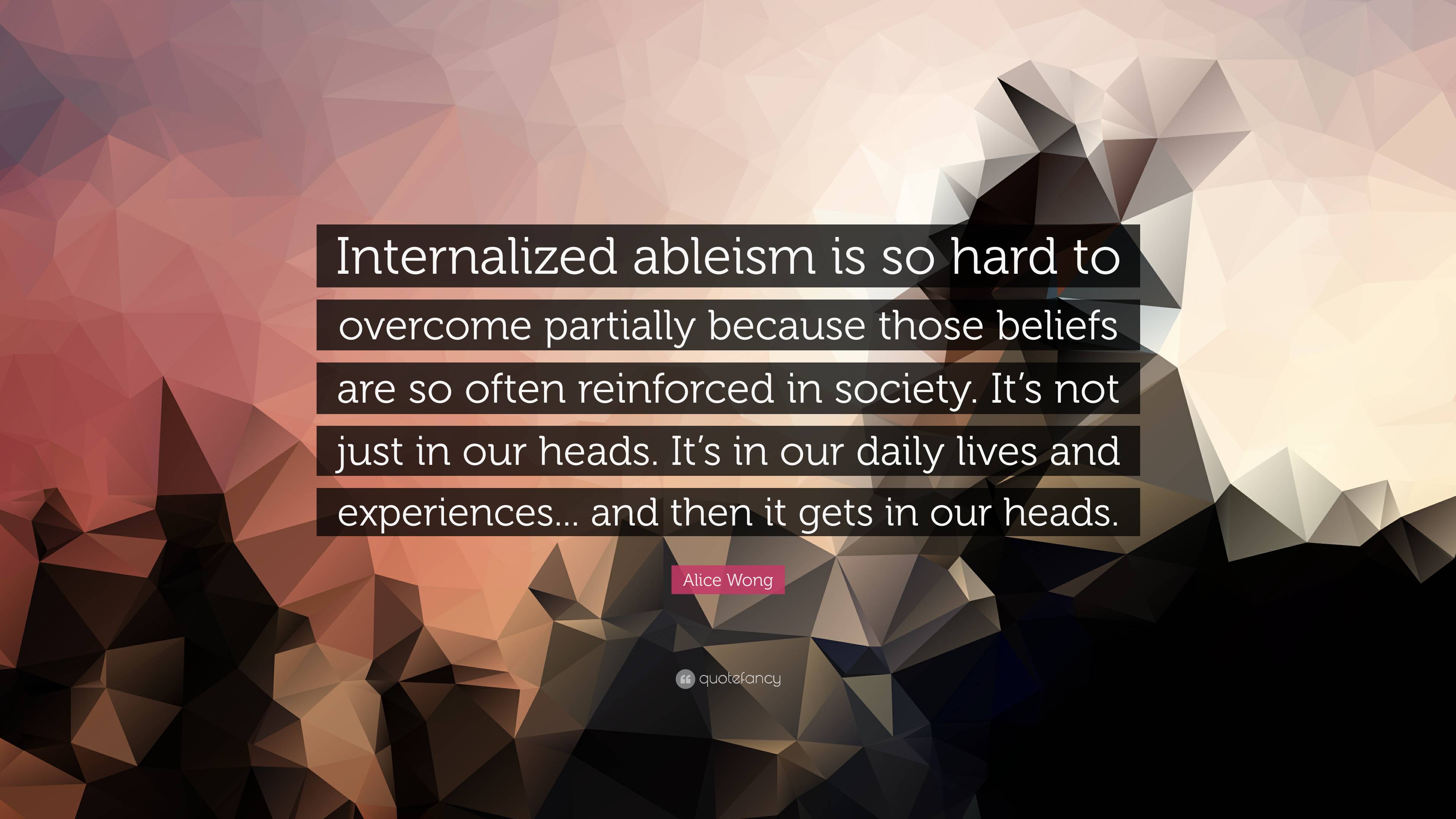The very beginning of Hehir's article mentions, "it was clear to the doctors and to Joe’s mom Penny that he would likely have disabilities. What wasn’t clear to Penny at the time was that she was entering a new world, that of a parent of a child with disabilities, a world in which she would have to fight constantly for her child to have the most basic of rights, a world in which deeply held negative cultural assumptions concerning disability would influence every aspect of her son’s life," (pg 1). I think that this section is important to include at the beginning of my blog right now because it covers societies discriminatory actions on not just people with disabilities but also families of people with disabilities. I think that it is interesting to live in a society where some parents may be ashamed of their child just because they are born with (or grow into) a disability. However, now that I think about it more, this fearful feeling might be mores directed towards wanting to protect their child from worlds harm---in this case, fearing their child will be acted towards differently because of their disability. This is just another reason of society needing to welcome people with disabilities rather than separate them from the rest.
In my kindergarten service placement this semester there is a child who is on the spectrum. He is surrounded by his peers and many of his classmates are super good friends with him. He is a super enthusiastic, goofy, and helpful student, just as the rest of his class is. However, he does sometimes have outbursts on his bad days and his classmates experience this with him. Something fascinating about the students in this class is that when I have worked closely with this child with autism and his neurotypical friends, I have noticed how this students classmates adapt to his behaviors in a way that they can help meet his needs best. For example, if he seems to becoming overstimulated by the situation, his classmates might do something to deflate the situation that they have recognized has calmed him down in the past. These interactions between the students is something that I noted because it is very different than what I can remember from my kindergarten experience. I remember there were a few students who I knew were my age but they were never fully in the classroom with us and I was always so confused why they weren't with us and I remember my friends and I in the class thinking that they all got "special treatment", when really my friends and I were the ones getting special treatment. I think that I would have understood the situation so much better if I was introduced to what autism was and how it effected my few classmates, rather than being sheltered from it and them being sheltered from our class.
I looked up just examples of ableism within schools and I was honestly shocked to read through this list that made me think of things I would have never thought about in the first place. I think it is super eye opening to looking through this.


I really liked your perspective from the parent's point of view of how fear can stems from the idea that they're child will have anything less than a normal perspective. It's nice to hear that the neurotypical kids are able to sense the needs of the other student. It gives hope for how accepting the next generation of individuals will be.
ReplyDeleteJulia, I agree that a parent feeling ashamed may come from their fear of what might happen to their child. I think that this fear though, is a premature assumption they're making about their child. If they're constantly assuming the worst is going to happen to their kid, it might make them overprotect their child and stop them from experiencing thing for themself.
ReplyDelete"This is just another reason of society needing to welcome people with disabilities rather than separate them from the rest." I liked our outlook on this reading. I agree with what you said, I think it's time for society to welcome those that feel that are part of the out group and welcome them into the in group. I believe that people with disabilities have a lot more to offer than what society believe.
ReplyDeleteHi Julia, I liked how you included the part about your own clinical service placement. You really seem to enjoy working with the children at your placement. You also seem to understand the kids well so that of course is super important. Good job!
ReplyDeleteI really liked how you related this back to your service learning. I think it is very impressive that your students can help to turn around problems that their friend may be having by using past coping mechanisms. Not many kids at that age have the courage to do that!
ReplyDeleteHi Julia! I really enjoyed how you told a story from your placement and made the connection from the reading to something you're experiencing in person.
ReplyDelete